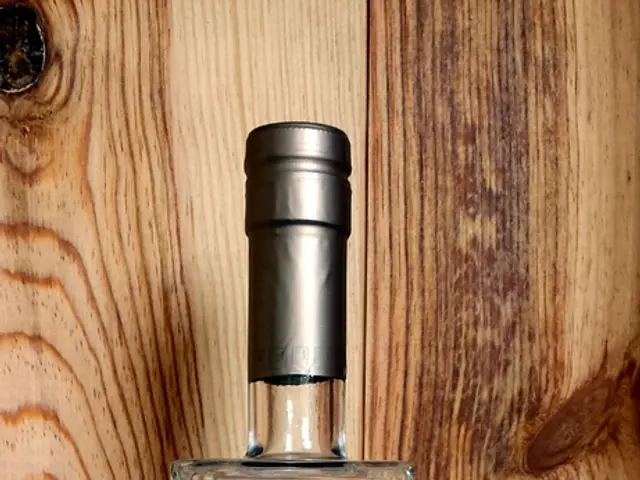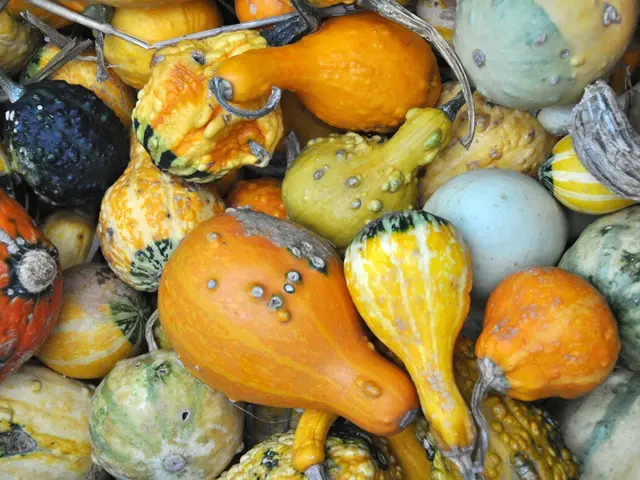Poo with an orange tint: Possible reasons and remedies
Orange stool, while not a common colour for human waste, can be caused by various factors beyond just diet. This article aims to provide insight into the potential causes of orange poop and when it might indicate underlying health issues.
Firstly, it's worth noting that foods high in beta-carotene, such as carrots, sweet potatoes, and mangoes, can contribute to orange stool. Beta-carotene is also found in some supplements and medications, making poop orange. However, excessive consumption of beta-carotene or foods with artificial dye can lead to noticeable changes in stool colour.
Beyond dietary causes, orange stool could indicate underlying issues with bile flow, liver and pancreas health, or intestinal inflammation. For instance, impaired liver or pancreas function can reduce the bile and digestive enzymes necessary for proper fat digestion, leading to changes in stool colour, including orange hues.
Other less common but significant causes include liver diseases such as cirrhosis, which disrupt bile production and flow. Cirrhosis can result from chronic alcohol use, hepatitis B or C infections, metabolic disorders, and other causes that impair liver function.
Inflammatory or infectious bowel conditions such as Crohn’s disease, ulcerative colitis, or proctitis may also alter stool characteristics, sometimes causing colour changes alongside symptoms like mucus or blood in stool. Food sensitivities or allergies can lead to intestinal irritation and mucus production, which may affect stool colour and consistency.
In babies, orange poop may result from medication intake by breastfeeding mothers or artificial food dyes passing into breast milk.
It's essential to remember that a change in the colour of a person's stool can indicate a medical condition. If orange stool persists despite lifestyle and dietary changes, it could be a sign of an underlying health problem, and a doctor may recommend stool analysis and blood tests.
Persistent changes in stool texture, shape, and frequency are reasons to talk with a doctor. Similarly, if you notice red blood in your stool, black stool, or green stools, it's crucial to consult a healthcare professional.
For those suffering from Gastroesophageal Reflux Disease (GERD), managing acid reflux, stomach acid, and protecting the esophagus through lifestyle changes can help prevent yellow stool. This includes not lying down after meals, standing up and walking after eating, not overeating, limiting alcohol, chocolate, or caffeine, restricting fatty, salty, or spicy food, losing weight if necessary, quitting smoking, raising the head of the bed, and eating dinner at least 3-4 hours before bed.
In conclusion, while orange stool can be caused by dietary factors, it can also signal underlying health issues. If you experience persistent orange stool or other changes in your stool, it's crucial to consult a healthcare professional for a proper evaluation.
- Excessive consumption of foods rich in beta-carotene or those with artificial dye can potentially lead to the color change of stool to orange.
- Impaired liver or pancreas function can reduce the production of bile and digestive enzymes, causing changes in stool color, including orange hues.
- Inflammatory or infectious bowel conditions like Crohn’s disease, ulcerative colitis, or proctitis can alter stool characteristics and lead to orange stool.
- In babies, orange poop may result from medication intake by breastfeeding mothers or artificial food dyes passing into breast milk.
- A change in stool color, including orange, could indicate an underlying health problem and may require a doctor's evaluation.
- Gastroesophageal Reflux Disease (GERD) can lead to yellow stool due to the reflux of stomach acid, and implementing lifestyle changes can help manage this.
- Changes in stool texture, shape, and frequency are reasons to consult a doctor for further evaluation.
- Visible blood in the stool, in the form of black, red, or green, should prompt immediate consultation with a healthcare professional.








